The Germanic Europe Cluster
I remember learning German - so beautiful, so strange - at school in Australia on the other side of the earth. I liked the sticklebrick nature of it, building long supple words by putting short ones together. Things could be brought into being that had no name in English - Weltanschauung, Schadenfreude, Sippenhaft, Sonderweg, Scheissfreundlichkeit, Vergangenheitsbewältigung.
- Anna Funder, Stasiland: Stories from Behind the Berlin Wall -
***
Today we continue our Culture Clusters series with a short summary of the main cultural traits shared by those societies that belong to the Germanic Europe cluster: Austria, Germany, the Netherlands, and German-speaking Switzerland.
Germanic societies are defined by:
- a low-context communication style, characterised by a mostly verbal, direct communication style that places high emphasis on rules and procedures;
- a monochronic approach to time management: time is linear - one event follows the other - and it's associated with efficiency and careful planning;
- individualism: in Germanic societies individuals are expected to be independent, self-sufficient, and to have a highly developed sense of personal responsibility. Small- (parents, children) rather than extended families are the norm, people only feel responsible for themselves and for a few, close loved ones (note: Germanic Europe scores low on both In-Group Collectivism - also defined as "family collectivism", "the extent to which individuals identify with and prioritize the group they belong to" - and Institutional Collectivism, "the degree to which organizational and societal institutions encourage individuals to be integrated into groups and organizations");
- a doing orientation (Germanic cultures value productivity, efficiency, high-performance and competitiveness. People strive to achieve goals, for social status is associated with from personal accomplishments. Rewards tend to be based on merit;
- a dislike for ambiguity and unpredictability (Uncertainty Avoidance. This cluster has wish for more rules and regulations to reduce the possibility of uncertain future outcomes);
- an overall "masculine" orientation (traditionally male dominated societies whose members share a "live to work" attitude, value assertiveness and are performance driven) with the exception of the Netherlands, the only "feminine" society in this cluster ("work to live" attitude, the Dutch value social harmony and group consensus and prefer cooperation over competition);
- low power distance dynamics (privilege and social inequality are not well tolerated, power is decentralized, hierarchy is mainly a matter of convenience. In the workplace, employees are encouraged to be independent and proactive, their knowledge and expertise are highly value).
When it comes to leadership, the ideal leader in Germanic European societies appears to be charismatic, participative, autonomous, and group-oriented: independent thinking and proactivity are highly appreciated, people are encouraged to share their ideas and to take responsibility for their own work and its outcomes. Tolerance for self-protective leadership (the self-conscious style that focuses on "face-saving", on the safety and protection of the leader) is low in comparison with other clusters.
***
Note: since some of my readers pointed out - and fairly so - that cultural traits seem to be repeated across the different culture clusters we’ve been discussing so far, it’s important to mention that indeed "generic" traits (cultural dimensions) are common across different cultures and societies, but they take a different "flavour" according to the local context. For instance, the Confucian-Asian definition of shame ("In true shame-oriented cultures, every person has a place and a duty in the society. One maintains self-respect, not by choosing what is good rather than what is evil, but by choosing what is expected of one. Those who fail will often turn their aggression against themselves instead of using violence against others. By punishing themselves they maintain their self-respect before others, for shame cannot be relieved, as guilt can be, by confession and atonement. Shame is removed and honour restored only when a person does what the society expects of him or her in the situation" - Hiebert, Paul G.) doesn’t fully overlap with the notion of shame in Latin-American or in Eastern European societies, where shame is closely associated with honour.
Specific "flavours" are usually discussed in depth in the "Articles" section of this website.
More to follow.
***
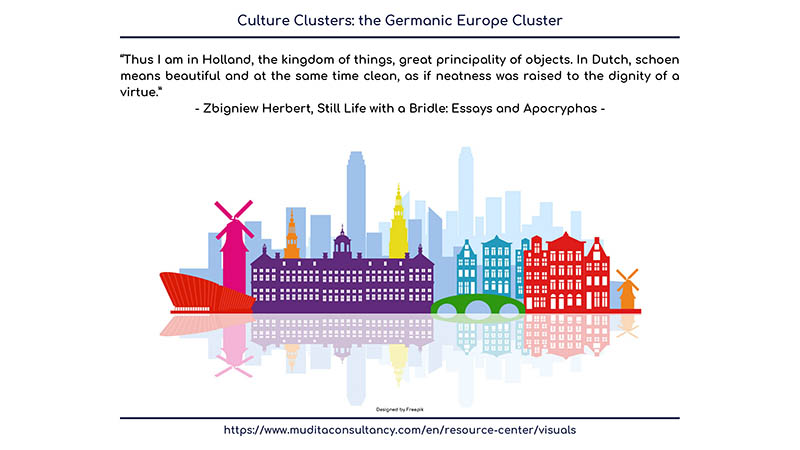
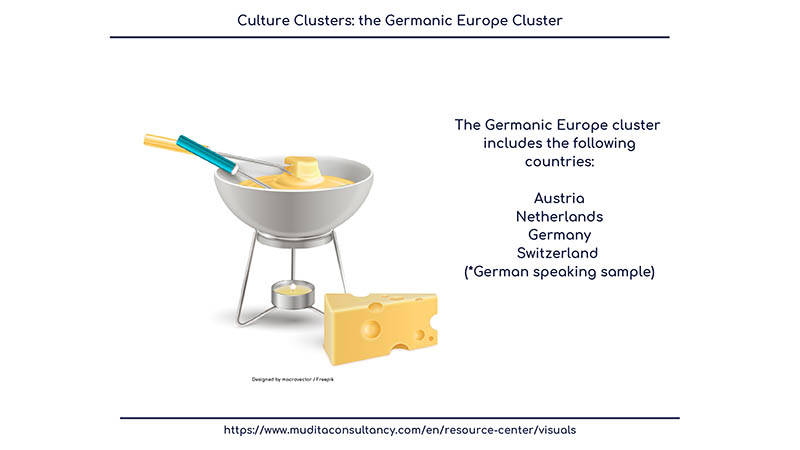
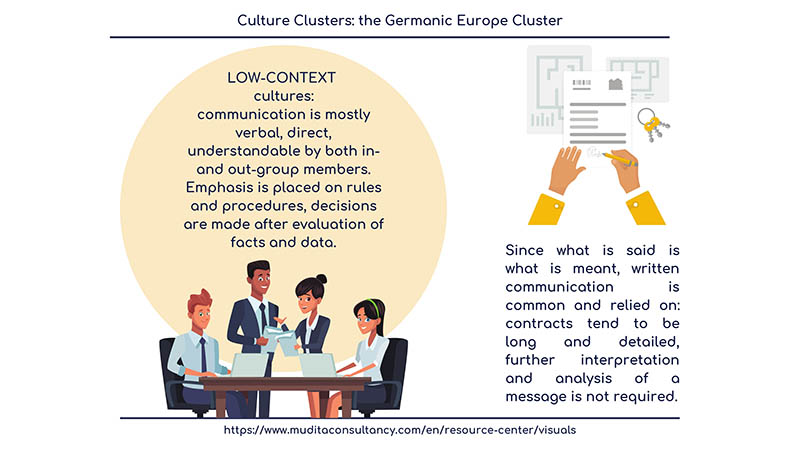
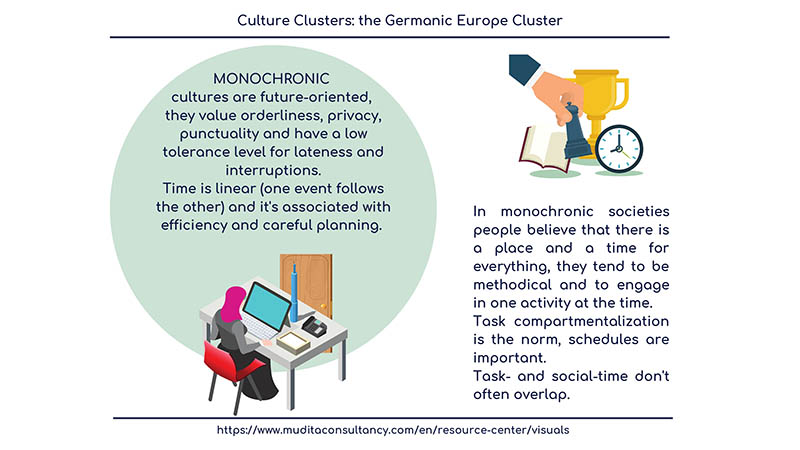


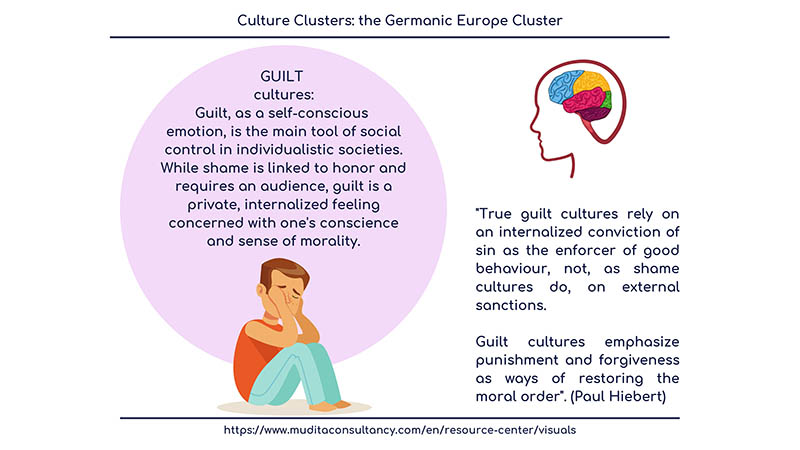

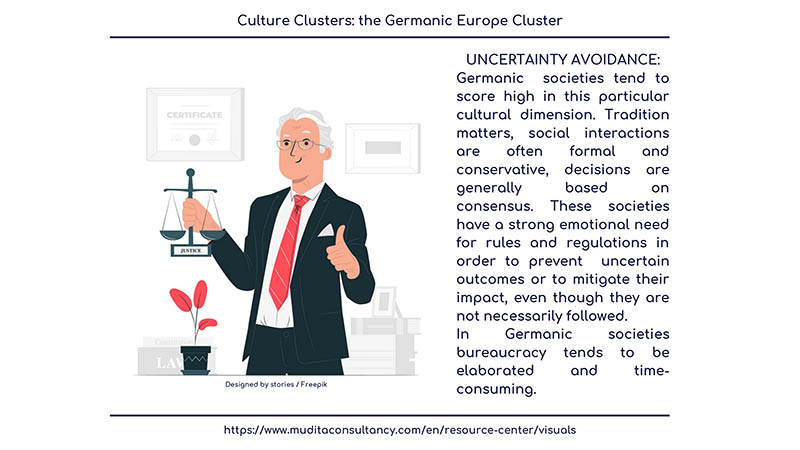
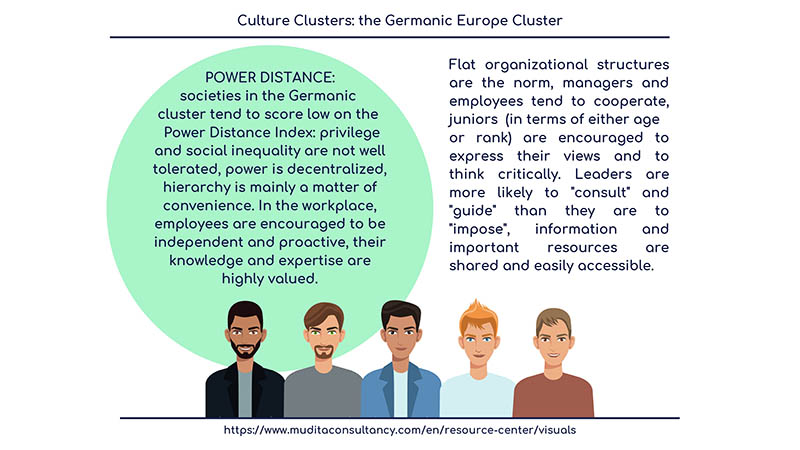
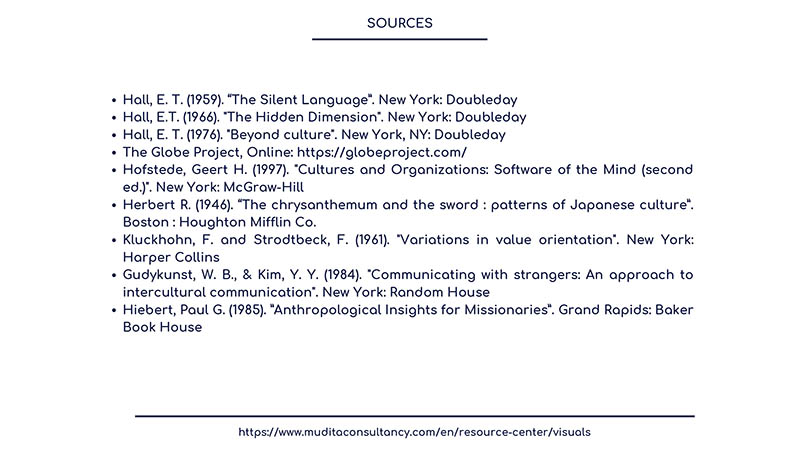
***
Related posts:
- The Sub-Saharan Africa Cluster
- The Middle East Cluster
- The Latin Europe Cluster
- The Nordic Cluster
- The Eastern Europe Cluster
- The Southern Asia Cluster
- The Latin America Cluster
- The Confucian-Asia Cluster
- The Anglo Cluster
***
SOURCES:
- House, R. J., Hanges, P. J., Javidan, M., Dorfman, P. W., & Gupta, V. (2004). "Culture, leadership, and organizations: The GLOBE study of 62 societies". CA: Thousand Oaks
- Hall, E. T. (1959). “The Silent Language”. New York: Doubleday
- Hall, E.T. (1966). "The Hidden Dimension". New York: Doubleday
- Hall, E. T. (1976). "Beyond culture". New York, NY: Doubleday
- The Globe Project, Online: https://globeproject.com/
- Hofstede, Geert H. (1997). "Cultures and Organizations: Software of the Mind". New York: McGraw-Hill
- Herbert R. (1946). “The chrysanthemum and the sword: patterns of Japanese culture”. Boston : Houghton Mifflin Co.
- Kluckhohn, F. and Strodtbeck, F. (1961). "Variations in value orientation". New York: Harper Collins
- Gudykunst, W. B., & Kim, Y. Y. (1984). "Communicating with strangers: An approach to intercultural communication". New York: Random House
- Hiebert, Paul G. (1985). ”Anthropological Insights for Missionaries”. Grand Rapids: Baker Book House
Disclosure: This post contains affiliate links. If you decided to buy any of the products listed here, I would earn a small commission (at no additional cost to you).

